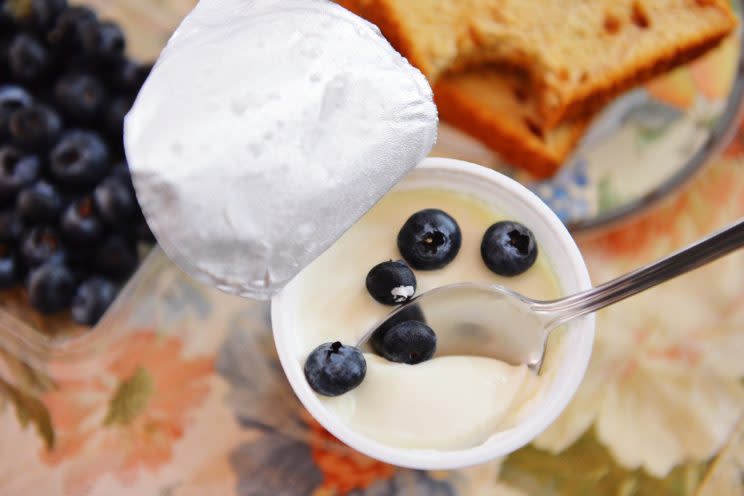New study debunks health benefits claimed by probiotic yogurts

Probiotic yogurt contains “good” bacteria that’s linked with boosting immunity, but a new Canadian study reveals that most popular yogurts fall short of the probiotic dosage needed to be of any real benefit to our bodies.
Health Canada requires that products labelled as “probiotic” contain at least one billion bacteria per serving. But the new study by nutritional science researchers at the University of Toronto says the dosages of probiotics found in common yogurts are far too low to produce the positive effects seen in clinical trials.
Probiotic yogurts have become supermarket favourites based on claims of crowding out harmful bacteria and assisting digestion. Some yogurts tout the benefits of reduced flatulence, stomach discomfort and diarrhea caused by the use of antibiotics.
But Mary Scourboutakos, a postdoctoral research associate who co-authored the study along with professors Elena Comelli and Mary L’Abbe, says the probiotic levels in these yogurts were sometimes up to 25 times lower than what is found to be effective.
ALSO SEE: These are the fruit and vegetables with the most pesticide

The researchers summarized the consumption needed for potential health benefits in this chart.
For example Dannon’s Activia contains Bifidobacterium lactis DN-173 010, which has been shown in to improve regularity and decrease stomach pain and bloating. But researchers found that it would take eight to 25 servings of the yogurt per day to achieve the effects shown in clinical trials.
Another popular brand, DanActive, contains Lactobacillus casei DN 114-001 strain, which studies show helps decrease effects of the common cold — you’ll need least two servings per day to achieve these benefits.
BioBest also fights a cold, but 20 servings a day would be needed to achieve the effects accounted for in trials.
Yoptimal contains Bifidobacterium lactis BB12+ and Lactobacillus acidophilus LA-5, which decrease cavity-causing bacteria and may improve glycemic control and cholesterol levels in diabetics. One and a half to two servings per day would be needed.
ALSO SEE: Mom sheds 150 lbs. after kicking her candy addiction
The team also looked at kefir products by Liberte and Iogo, which are a kind of drinkable, fermented milk. They found these products contained the highest dosage of probiotic bacteria. They also had the greatest variety of different types of bacteria — sometimes up to 10 different strains.
Fermented foods, such as sauerkraut and kimchi, are also effective sources of probiotics.
But the study’s findings don’t necessarily mean that consumers should give up on probiotic yogurts altogether.
Scourboutakos points out an agreement among scientists that the more good bacteria there is in your gut, the harder it is for bad bacteria to flourish and cause problems. She suggests looking for probiotic products that have at least 10 billion bacteria per serving.
Let us know what you think by tweeting @YahooStyleCA!



